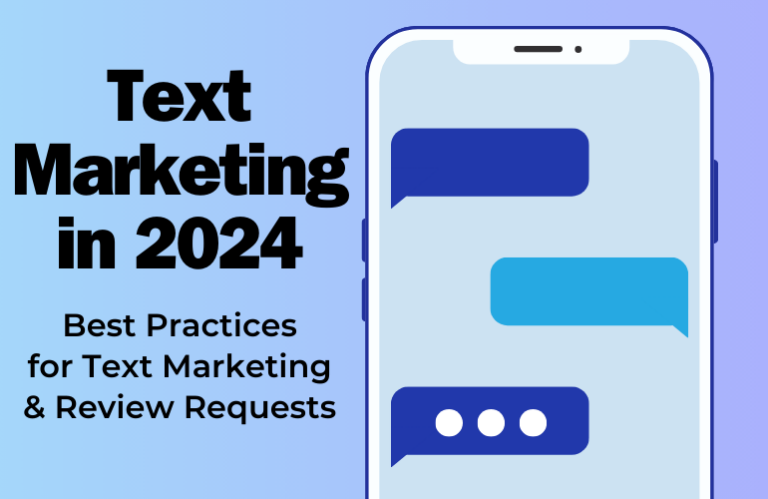 Are Anonymous Reviews a Good or Bad idea? ReviewInc put this question to a test. In July 2015, we asked 3,001 U.S. Consumers about writing reviews and business ratings anonymously. We gave each of them the choice of multiple answers. In general, 63.1% of the consumers provided reasons in support of anonymous reviews where as 44.6% provided reasons that they would be against anonymous reviews. Reasons in support of anonymous reviews included:
Are Anonymous Reviews a Good or Bad idea? ReviewInc put this question to a test. In July 2015, we asked 3,001 U.S. Consumers about writing reviews and business ratings anonymously. We gave each of them the choice of multiple answers. In general, 63.1% of the consumers provided reasons in support of anonymous reviews where as 44.6% provided reasons that they would be against anonymous reviews. Reasons in support of anonymous reviews included:
- Protected Free Speech
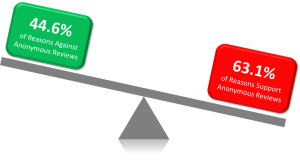
- Protects the reviews from retaliation
- Makes it more likely that a review would be written.
Reasons against anonymous reviews included:
- Undermining the Integrity of the Review
- That it is wrong to hide one’s identity (when writing a review)
- That is should be against the law.
Protection of Free Speech was cited as the most popular response (at 35.6% of all responses), still, the second most popular response indicated that consumers recognized that anonymous reviews undermine the trust (or integrity) of the review.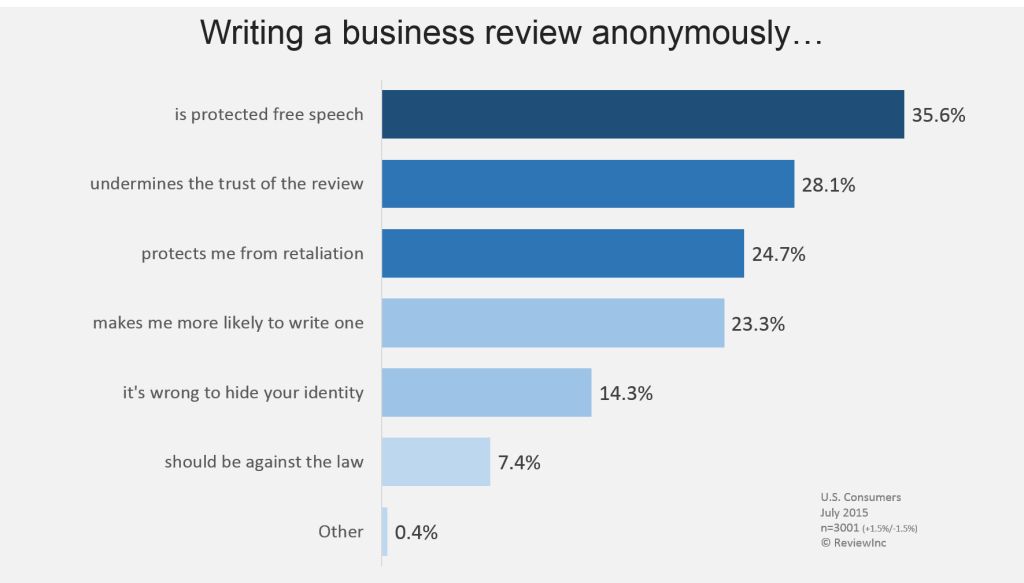
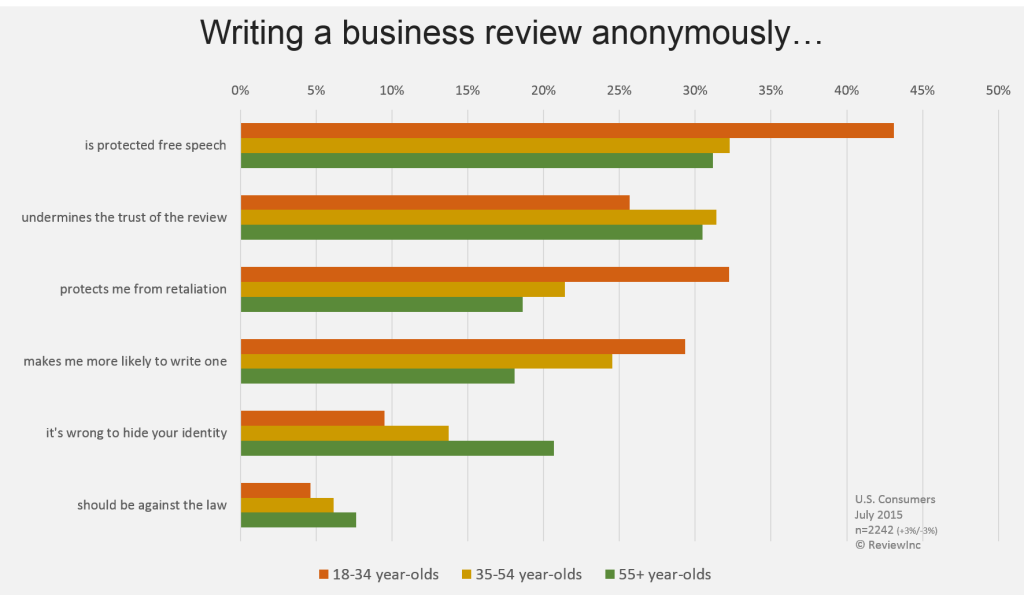 There were some significant and interesting differences in responses when comparing demographics such as age group, gender and income level. It was interesting to note that 43% of Millennials or Gen-Y (18-34 year olds) had a much stronger opinion about anonymous reviews being protected free speech when compared to older groups at 32%. The Millennials didn’t seem to feel that the integrity of the reviews would be as affected, but were nearly twice the opinion that anonymous reviews would protect them from retaliation which would also make them much more likely to write a review (if it was anonymous). Conversely, the older the age group, the more they felt that it was wrong to hide one’s identity (when writing a business review or giving business ratings) and maybe should even be against the law.
There were some significant and interesting differences in responses when comparing demographics such as age group, gender and income level. It was interesting to note that 43% of Millennials or Gen-Y (18-34 year olds) had a much stronger opinion about anonymous reviews being protected free speech when compared to older groups at 32%. The Millennials didn’t seem to feel that the integrity of the reviews would be as affected, but were nearly twice the opinion that anonymous reviews would protect them from retaliation which would also make them much more likely to write a review (if it was anonymous). Conversely, the older the age group, the more they felt that it was wrong to hide one’s identity (when writing a business review or giving business ratings) and maybe should even be against the law.
In some cases, responses by gender were quite significant. While both genders had a near equal opinion that anonymous reviews were protected free speech, men felt more strongly that anonymous reviews undermined the trust (or integrity) of the review. However women, felt more strongly that the ability to write an anonymous review would make them more likely to write a review.
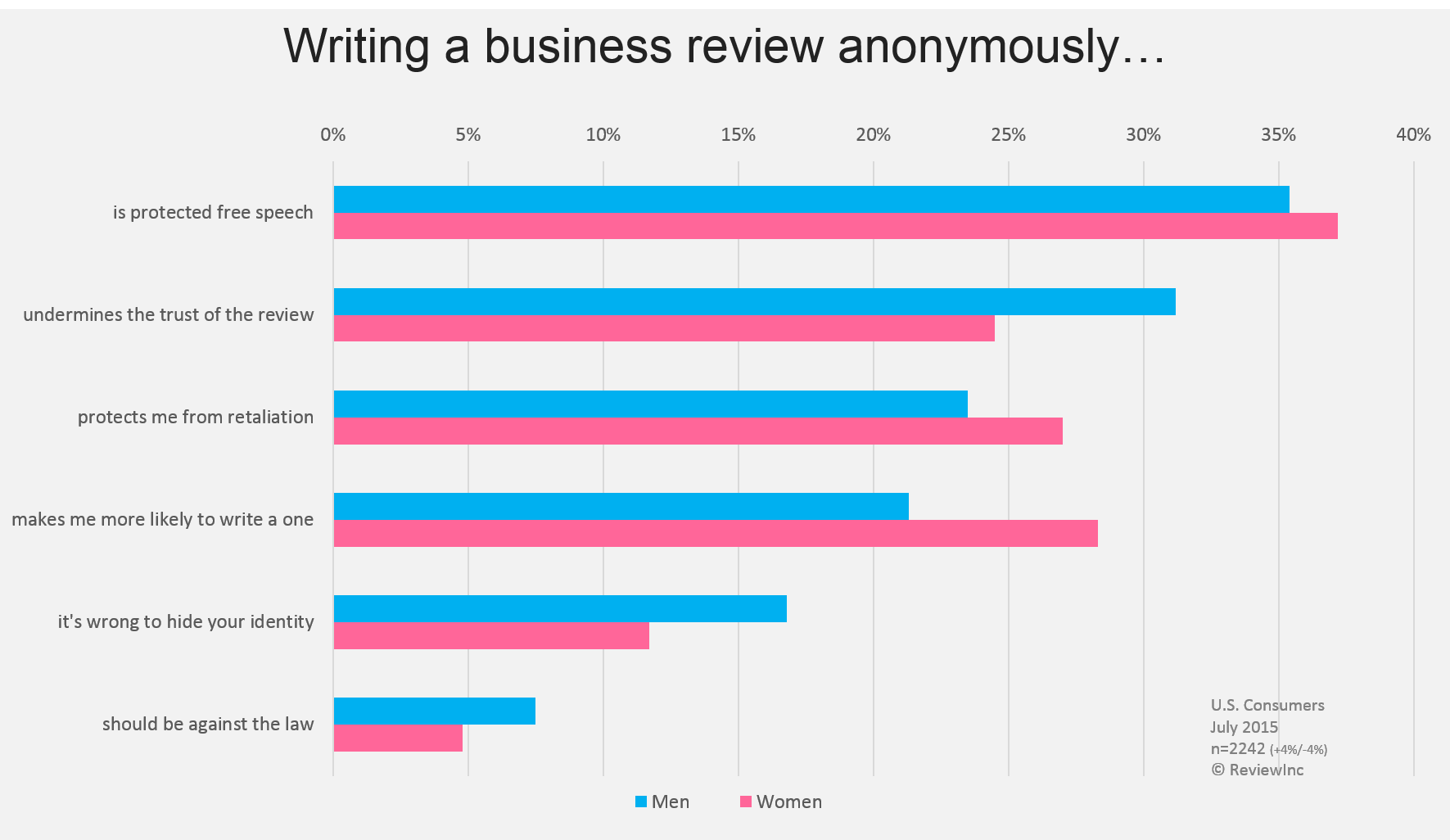
When examining income levels associated with opinions about anonymous reviews there was a strange anomaly. On several answers, those with high earnings and those with little to no earnings seemed to respond similarly to those with mid-range incomes. Why? Presumably, they had more vulnerabilities but for different reasons. Those with higher income were vulnerable financially because they are a larger financial target to something like a lawsuit and have more to lose. Those with little or no income were, well, are just very vulnerable to attack with no meaningful type of protection.
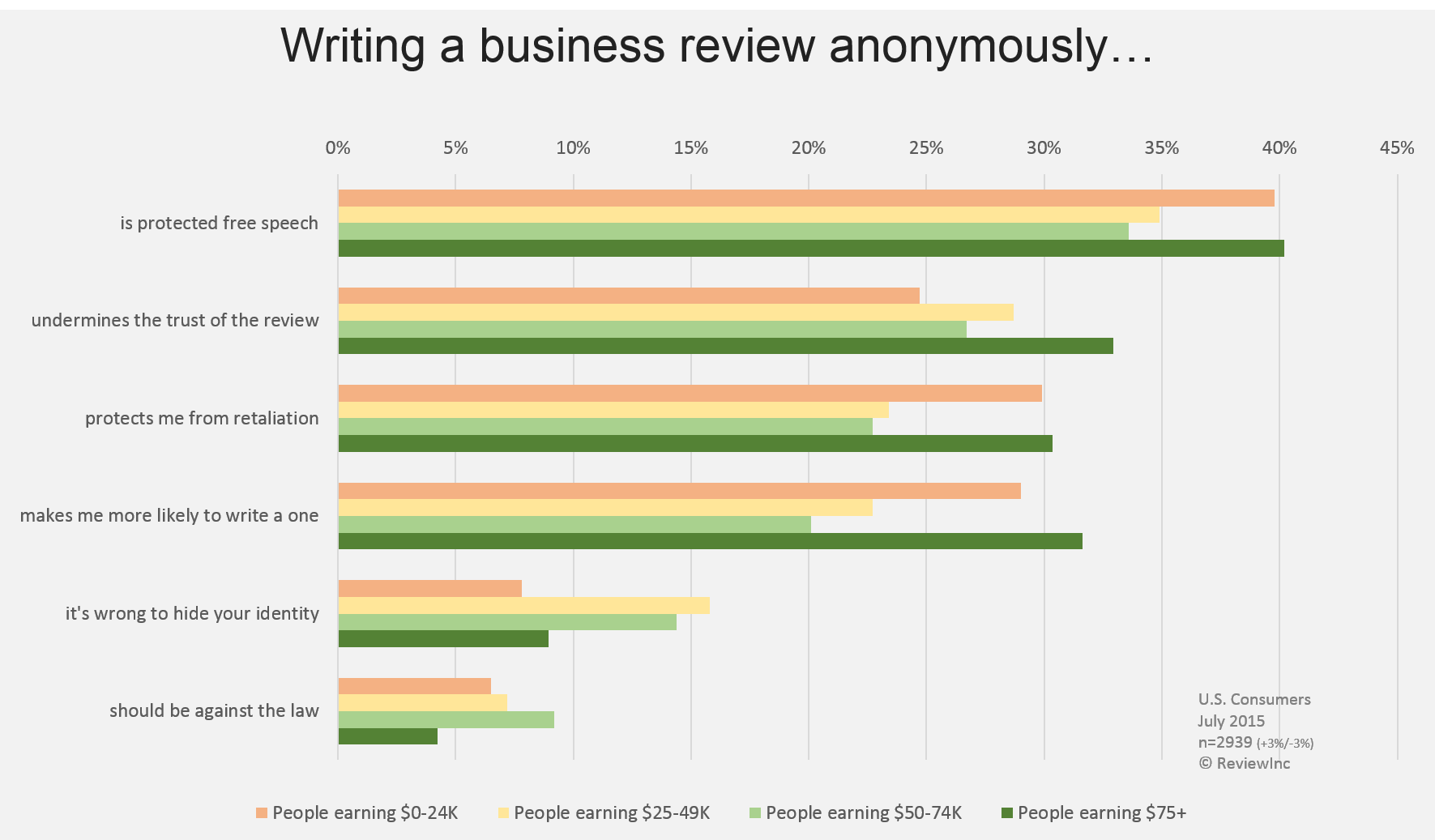
While internet users can disguise or hide their identity, we agree that reviews associated with an identifiable customer, client or patient carry far more weight and value than do anonymous reviews. Reviews on sites like Google+, Yelp or Facebook have policies against anonymous reviews (as do many other review sites). However, even with a large number of anonymous unique reviews about a business that include detailed text descriptions (not just a rating value), consumers do get a clear picture of a business, establishment, product or service.
ReviewInc can help businesses get more reviews everywhere and enhance their reputation. For a no obligation consultation call ReviewInc at 877-9REVIEW or leave a note here and have an expert contact you.

